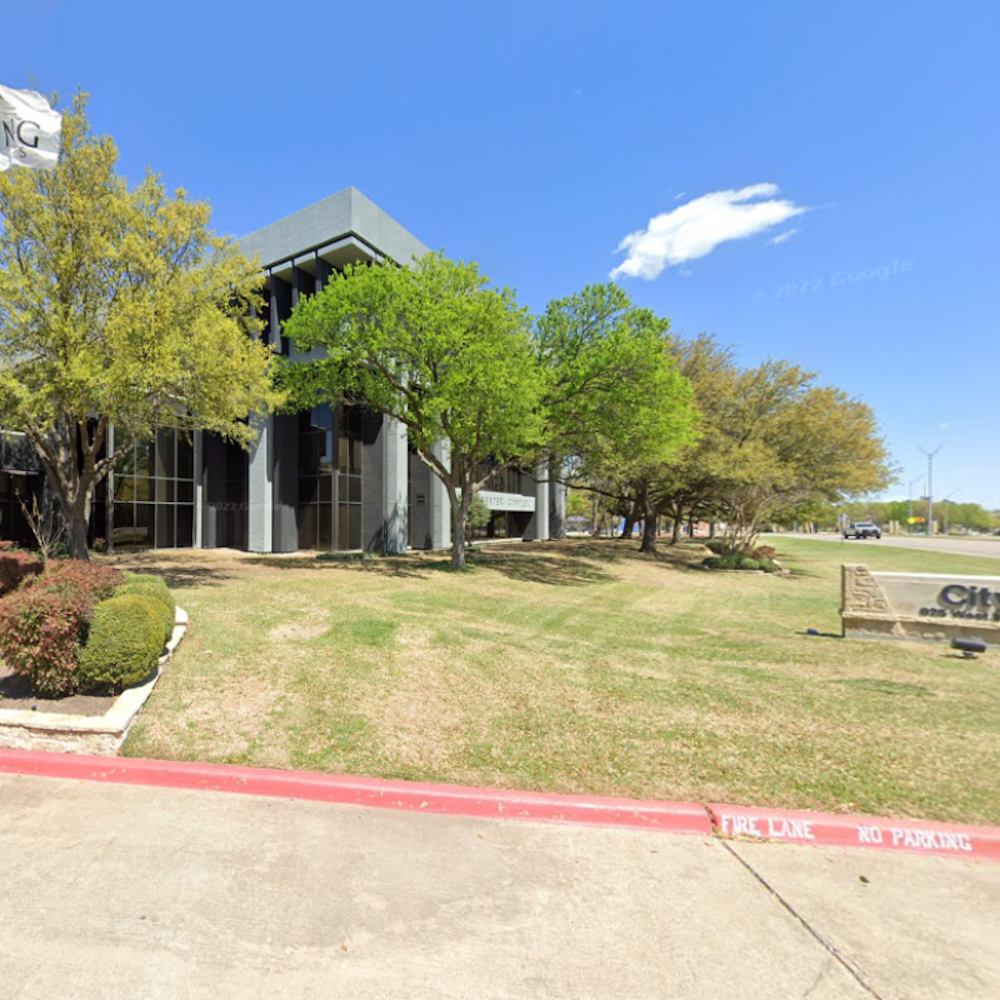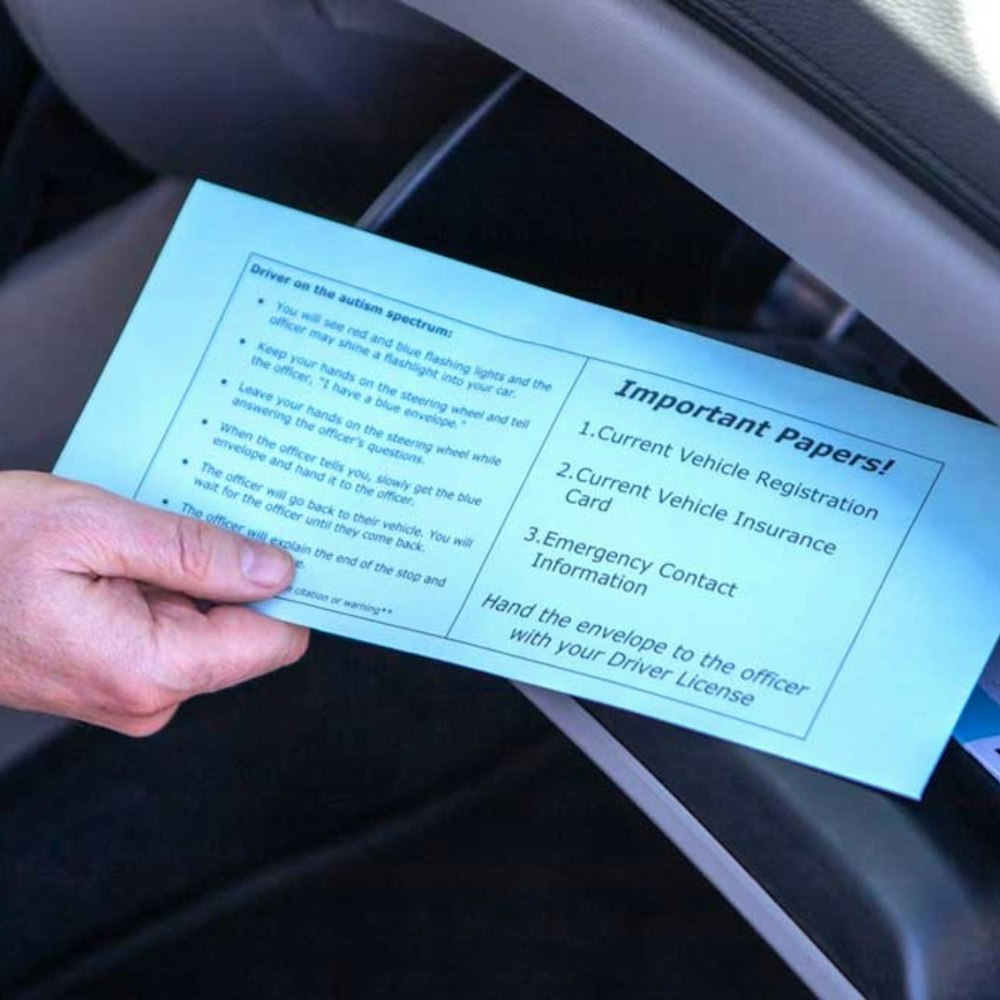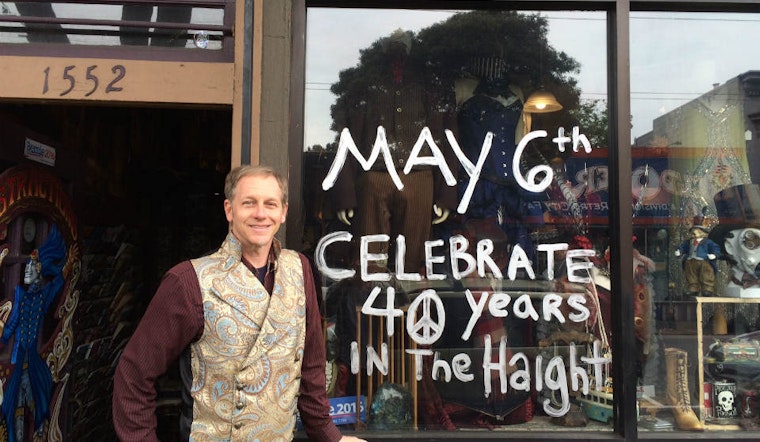
This Friday marks 40 years of business in the Upper Haight for Distractions owner Jim Siegel, and in that time, he's seen a lot. We sat down with him to talk about his unlikely transition from Haight street kid to veteran business owner, and how he's seen the neighborhood change over the decades.
Siegel says he's been in love with the Haight ever since he first saw it, as a teenager growing up in Daly City. In 1972, when he was 16 years old, he moved to the neighborhood.
"I was a street kid," he said. But unlike a lot of people arriving in the early 1970s, he said, "I was very blessed." He volunteered at the Switchboard, a volunteer information center with a 24/7 phone line. New arrivals could call to get information on apartment rentals and jobs, advice on where to obtain free healthcare, survival guides for living for free in San Francisco, and tips on organized crash pads.
"There were about 500 people in the Haight keeping the spirit of the 1960s alive" at that time, Siegel said, all of them working to preserve the free culture of the Diggers. The idea was to "drop out and live on welfare, but give back to the community by volunteering."
Siegel had taken a lot of acid by then, he said, and managed to qualify for mental disability income from the government. So in 1976, he and two friends, also street kids who were also living on SSI (then called ATD), applied to the government for additional rehabilitation grants; they were awarded $5,000 each. They used the money to go into business as White Rabbit at 1409 Haight St., the space now occupied by Black Scale.
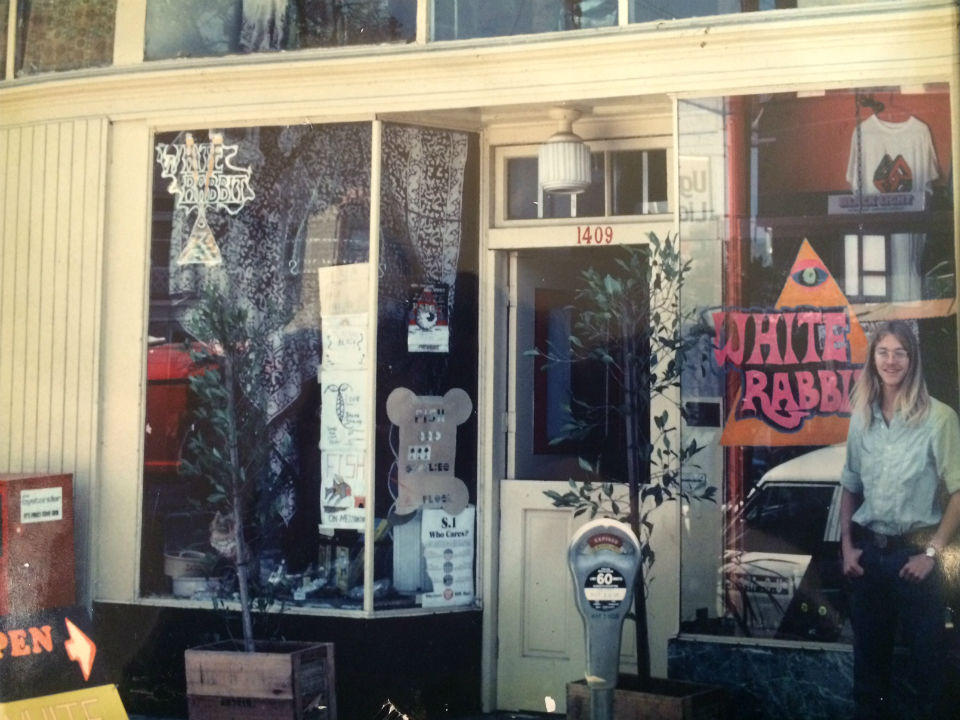
Siegel at White Rabbit in 1976.
White Rabbit had previously been Bob Stubbs's store, the Phoenix, which was founded in 1966. But by the time Siegel moved to the Haight, it was one of the last holdouts of hippie life from the 1960s. By 1976, most of Haight Street's commercial spaces were boarded up with plywood or operating as liquor stores, Siegel said, with the exceptions of Robert's Hardware, Mendel's, and a few others.
Stubbs, the Phoenix's owner, was retiring to Hawaii, so gave the store's merchandise to Siegel and his friends outright. The landlord was so happy to have the space occupied that he didn't charge the three friends any rent for the first year. (When they did start paying rent, it was $250 per month.)
White Rabbit opened as a combined plant store, head shop, and pet supply store. "We didn't count on the money," Siedel said. "We did it to have fun." He said White Rabbit was largely a place to hang out; he and his friends invited people to come in and take LSD or smoke pot.
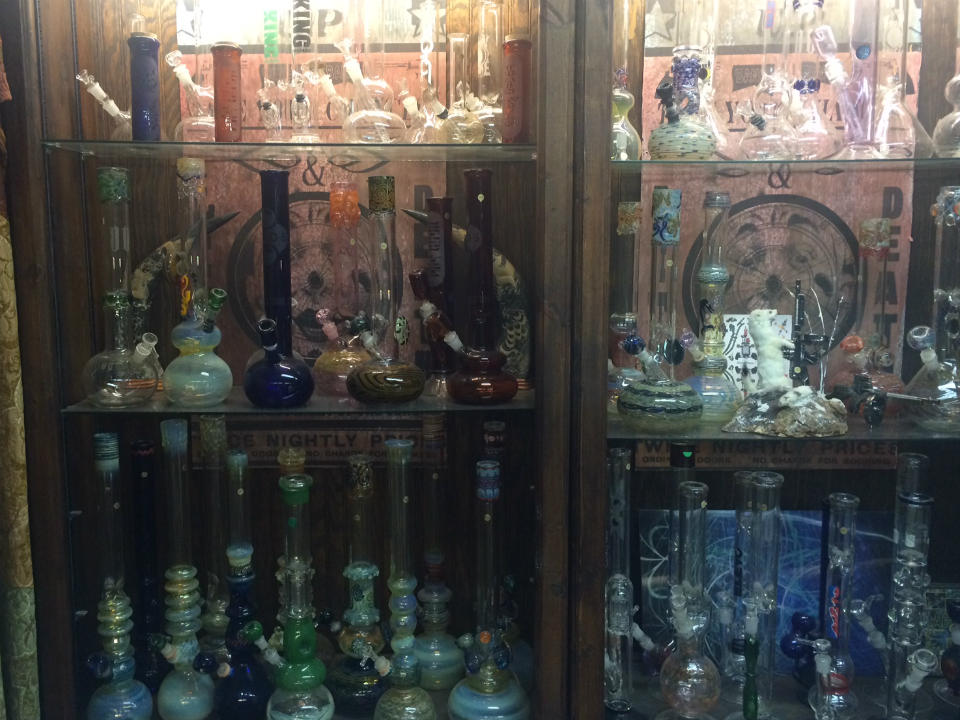
The head shop counter at today's Distractions.
The White Rabbit partnership dissolved in 1978, and Siegel moved over to 1372 Haight, where he founded Pipe Dreams (which still exists in a different incarnation) as a dedicated head shop. But that partnership had an even shorter life.
Soon after, Siegel sold out his share of Pipe Dreams, took a third of the merchandise up the street, and founded the first incarnation of Distractions, then at 1692 Haight St. (The space was most recently home to the Homeless Youth Alliance, until they lost their lease in late 2013.)
Over the years, Siegel has operated shops at five different locations in the Haight. One relocation was forced by a 1989 fire at Haight and Cole; another time, he was evicted by a landlord for displaying gay magazines for sale in the window. But he's been settled in at 1552 Haight St. since 1989.
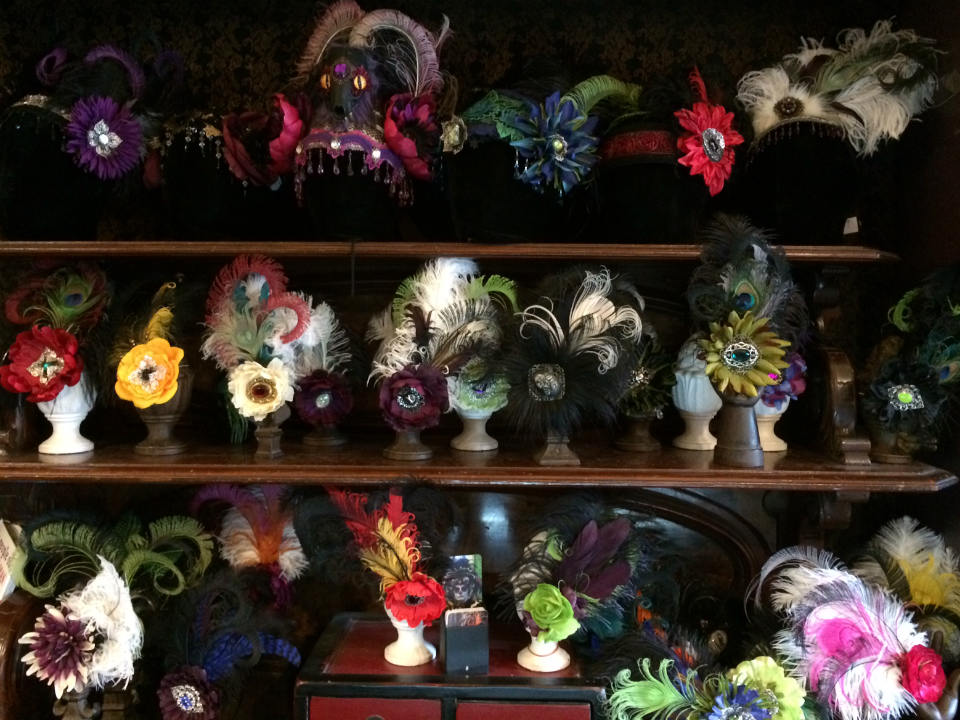
The store's format changed as frequently as its location. "We went from a hippie store, to a head shop, to a new-wave clothing store for I-Beam customers, to a Grateful Dead-type store, to a raver shop," Siegel said. "I'm gay, and I like young guys on Haight Street, so whenever I get a new boyfriend, I change the vibe. It's worked out pretty well!"
He said the store became Dead-themed right before the Dead's popularity re-exploded in the late 1980s. But once Jerry Garcia started using heroin, Siegel wanted to transition away from that image. In 1992, he began shifting to a shop primarily for ravers. By the late 1990s, Distractions was San Francisco's exclusive outlet for Burning Man tickets, and Siegel was on the committee that convinced Burning Man to include more than just one "rave night," which at the time was held in a segregated camp.
"That's really shaped the direction the store has gone for the last 20 years," he said. "We cater to the counterculture, as the counterculture changes."
Siegel is thrilled to have made it to the 40-year mark, especially as a marker of how far he's come since his days living on the streets. "It's definitely a rags-to-riches story," he said, although "my whole idea was never to make money, [but] to keep the spirit of the '60s alive, because I love the neighborhood."
"The whole store falling into my lap when I was 19 was such a blessing. That's why I still support the street kids; I feel bad for the homeless kids today, because they don't have the opportunities that I did then. I'm glad to have been part of that community."







